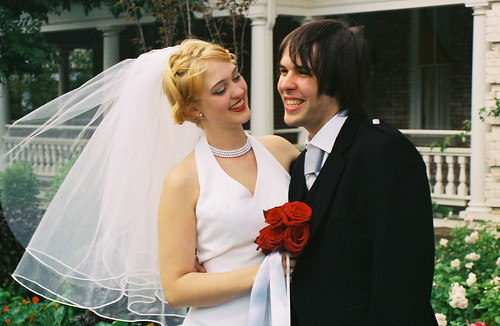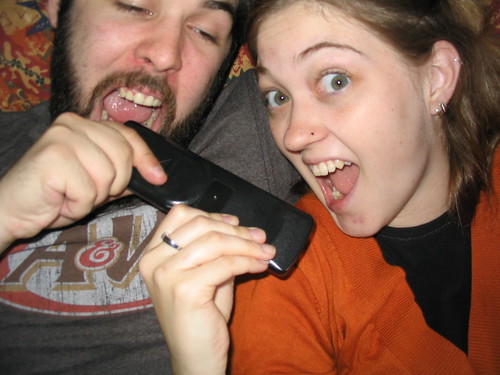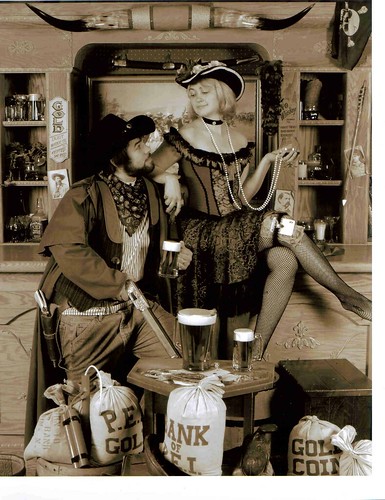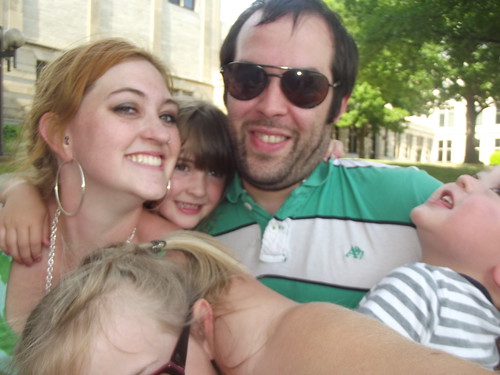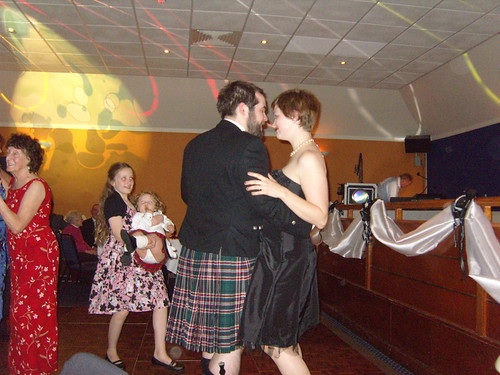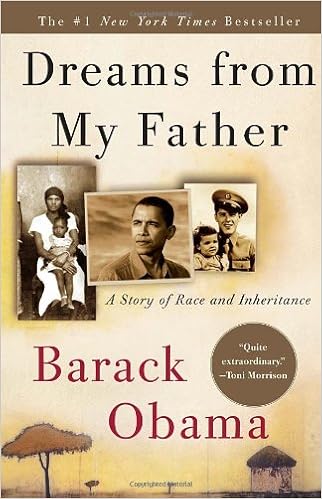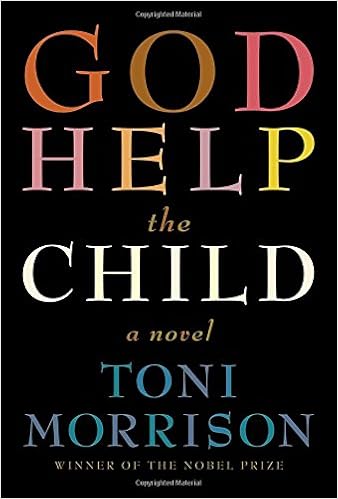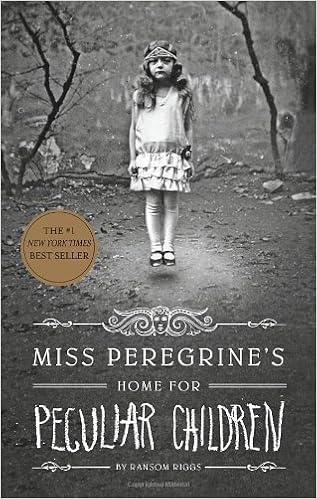I miss you, dear blog. I apologize for the time I've been away, but I've been busy and tired. Perhaps a wee short story will cheer you up and make up for our lost time together?
The American Sailor
If Ma
and Da only knew... Maisie thought to herself as
she brushed a thin layer of brown mascara over her translucent eyelashes. She
was going to meet him again tonight, and if she could have her way, every night
after. He was so different from all the other
boys she knew; he was a real man, a confident, handsome, exciting man. He had
made her feel exciting too, and the exhilarating flush she felt when he had held
her hand earlier that day made her feel tingly and guilty and alive all at once
in a way she could only describe as delicious.
Ma would never approve, of course. Girls who went out with the American sailors
were slappers. Da certainly wouldn’t
approve; he’d have that man’s guts for garters if he knew who she was meeting,
and where! Maisie knew a few of the girls who went out with sailors and had
always looked down her nose at them. But
Robert was different. She was different.
She wasn’t looking for the “good time” those other girls were, and she
felt in her heart that neither was Robert.
They were both looking for the same thing: true love. There was no question about it for Maisie;
this was it, the real thing, he was The One.
She knew meeting with him without Ma and Da
finding out would be tricky. They were devout
Catholics, Da especially. Maisie wasn’t
allowed to go to the pictures or the dancing.
It was fate that she even met Robert at all. They’d met at the newsagents while she was
getting the paper for Ma and smokes for Da.
The rain had washed the snow off the pavement into brown and grey clumps
and then refrozen. Da’s arthritis had been playing up too much for him to take
the treacherous walk himself, but Maisie enjoyed getting out for a solitary
walk so was quick to accept the chore.
While she was paying Mr Watt for her
sundries, the sailor in his starched blue uniform was reading the front page
headlines of the Telegraph. Suddenly, he had laughed out loud a big
hearty guffaw. Startled, she looked up
at him, and he met her gaze. The moment
electrified her. They stared into one
another’s eyes for a few seconds, their souls becoming acquainted. Still laughing, still holding her gaze, he
pointed at the paper to the word “ironmongery” and laughed some more. “Iron-mongery. Sounds like somethin’ outta Shakespeare,
don’t it, miss?” Maisie didn’t get the
joke, she just blushed and looked away.
Her pink cheeks and ginger hair caught his attention, and he teasingly
remarked, “You’re as pretty as a peony, when you blush like that. I’m Robert.
What’s your name, Red?”
Maisie could have died under the
disapproving scrutiny of Mr Watt, glaring at her over his bifocals while
handing over her change. She felt
suddenly very hot under her thick white coat despite the icy gusts blowing over
the Clyde. She whispered, “I’m Margaret”
and quickly hurried out the door. Robert
chased after her, tossing the paper back onto the counter.
“Wait! Can I walk you home? These sidewalks are too slippery for a little
thing like you to be walking around on by yourself.”
Maisie only lived around the corner, but
her father would have been scandalized to see her carrying on with one of the
Americans like that, and in broad daylight too.
So Maisie, peering over her shoulder to check Mr Watt couldn’t see, turned
down a different street and allowed this handsome stranger to walk with her.
Robert was carefree, chivalrous, and
charming. He kept calling her “Red” even
after she insisted on being called Margaret – or at least Maisie. Each time he responded with, “Whatever you
wish, Red,” which made her blush all over again. “I like to make you blush,” he
chided. “You’re as pretty as a peony when you blush like that.” The rain was
coming on again and the spits of ice brought a deeper rose to her cheeks and a
sting to her eyes, shining the green irises like an emerald.
Maisie allowed him to walk her three blocks
up the street and then one block down another before confessing, “I’d better go
the rest of the way myself. Da doesn’t
approve of me talking to the boys.”
“Then would he approve of you talking to a
man?” That’s when he took her hand. The
sensation of his warm, rough palm lightly clasping her cold tiny white fingers
was intoxicating and poured all over her body like a warm shower. She of course blushed again, but this time
with rapture.
“I could meet you tonight. At the chapel. For mass.
I know it’s not anything, maybe it’s not what you do but --”
“I’ll be there. What time?
Where?”
“Seven thirty. Saint Mary’s, over
there. I always sit in the second-last
row up the back.”
It felt like sinning - gloriously, thrillingly
sinning - to be getting dolled up for a date at the mass. Ma and Da would never
think anything of it, Maisie attending an extra mass on a Saturday; they’d in
fact be proud as peacocks of her piety. She would just have to be subtle, lest any of
the neighbours should notice and talk. It was blasphemous really, using God to
meet a boy – a man, rather – but strangely she did not feel guilt. Or at least not enough guilt to repent
of. If anything, the glimmer of guilt
she felt only added to the overall excitement.
At any rate, she told herself, it was to a righteous end; she would one
day be Robert’s wife, there was no question about it.
She tucked her blusher back into her
handbag. With her comb, she brushed out
her red curls and pinned back the sides.
Her unruly red hair was a constant affliction to her, but Robert had
spoken of it as if it were beautiful – “pretty as a peony”, she repeated to
herself over and over. Years of being
called “Ginger” had resulted in detestation of her looks, but in one afternoon,
Robert had reversed all of that. In the reflection
she didn’t see a Ginger anymore, but a Peony.
Her cheeks pinked up again, and set her body on fire. She put down the comb. Turning to inspect her figure side-on in her
modest chapel dress, she imagined him watching for her to arrive, waiting in
the second-last row, and in the mirror, Maisie crossed herself prettily and
practiced an alluring genuflection.
Teatime was unendurable. Maisie’s father was in a poor spirit because
of his pains and the weather and kept pounding his fist on the table and
damning everything.
“Damn spoon!”
“Damn Yanks!”
“Damn bloody Tories!”
“Damn broken chair!”
“Damn bloody sodding Proddies!”
Maisie’s mother, as was her way, spent the
meal trying to placate her husband with more totties, more tea, more agreeing
nods and tuts, more hand pats. Maisie
couldn’t eat, and with her da’s crabbit mood, she worried she’d be asked to
stay home and help cheer him instead.
She did her best to swallow a few mouthfuls so as not to raise any
suspicions, and nodded and tutted in with her mother to keep everyone at
relative peace. Finally, the church bells rang for seven o’clock, and Maisie
was excused to get ready for mass. She
buckled her freshly polished shoes – praying no one would question why now on such a dreich day she had attended
to such a detested chore – and pulled her white coat over her shoulders. She surreptitiously surveyed her image in the
dark living room window and let herself out the front door.
Snow was falling again, this time with heavy,
plucky snowflakes, that rested on her coat and hair and eyelashes without
melting. The night was magical. Romantic.
She felt like one of the lassies in a Jane Austen book she’d read in
school. The chapel windows in the distance glowed in the dark night through the
rapidly falling snowflakes like a choir of angels calling her home. Inside, her sailor would be waiting for
her. She quickened her pace, growing
unable to bear the separation a second longer.
At the chapel, Maisie shut her eyes,
breathed in deeply, and pushed open the door.
Trying to appear nonchalant, she coolly surveyed the chapel for her
sailor, starting first in her second-last row up the back. She couldn’t see him. She dipped her finger in the holy water,
crossed herself absently, and slid into the pew. She was early after all, she reminded herself.
She had to control every muscle in her body
not to turn around every few seconds to check the door. She allowed herself a cursory glance once
every two minutes, which was torture.
She removed her coat, feeling the beads of sweat prickling on her
arms. Her face flushed. She peered over her shoulder at the
door. She waited. Her stomach gurgled; she realized she was
starving.
The organ began to play.
Her feet were heavy and her legs were thick
as she trudged through the glistening snow back home. She tried to remember
something about the mass to relay to her parents, but she had missed the entire
service, checking the door every minute until the very end. Her stomach was empty and cramping. The cold wind burned. She pulled her coat around her throat. The snow had stopped falling; the night was
vacuous, mute. Involuntarily she
continued to search the empty streets for Robert’s blue uniform. Maybe he thought she’d said eight
thirty. Maybe he went to the wrong
chapel. Maybe he’d been in an accident.
Maybe he’ll turn around the next corner in a frenzy and run to her,
apologizing for the mistake and beg for her forgiveness, explaining about the
terrible circumstances that had kept him away from her. But all hope eluded her once she reached the
front steps of her house. One last time,
she searched up and down the street for him, then let herself in the door,
resisting the tears until she was safely in her bedroom, where she cried tormented
until overtaken by sleep.
She didn’t even know his last name. He didn’t know where she really lived. Over
the next two days, Maisie searched for any excuse to get out and walk up and
down the streets and around the newsagents.
Robert was nowhere. Any time she
spotted a sailor in blue uniform, she lost her breath for an instant. How can
this be? How could he do this to me?
Surely something has happened to him. Her imagination led her to all
sorts of possible conclusions. He’d been shipped out. He’d gotten the time or place wrong and
thought she had stood him up. But the worst conclusion,
the worst one of all, the one she knew in her deepest, most anguished depths
was the truth but could not, would not, acknowledge, was that he did not love
her. She had been a plaything to him,
just like all the girls were to the Americans; he was just like the rest of
them.
On the third day, Tuesday, it rained. Maisie felt the rain was an embodiment of her
own inner turmoil and greeted it miserably.
She did not leave the house once that day but brooded at the window
watching the rain splash in puddles forming along the pavement. The snow turned to blocks of grimy brown
slush along the streets. Wretchedly, she
blamed herself for her misfortune.
Blaspheme against God’s Holy Church, and
this is what you get. The beautiful pure snow tarnished with sin becomes a heap
of filth, she thought poetically, and wrote the words in her private diary.
Never again, she vowed, and in a
derisive show of righteous passion, she drew an elaborate cross and nailed the
name ‘ROBERT’ to it.
Several rainy weeks passed. Though her
heart still ached, the painful sting of Robert’s slight had eased. Maisie felt older, a new possessor of sad
wisdom, and with renewed zeal, intensified her focus on heavenly matters. Robert was never far from her thoughts, but
she accepted this thorn in her flesh as rightfully deserved punishment. She
concentrated diligently on her lessons at school, helped her mother complete
household chores without complaint, responded to her father’s cantankerous
demands with a patient smile and attended confession twice weekly. Her soul was
healing.
One morning, she awoke to bright sunshine
peeking past her window curtains. She
grinned. The sun is a metaphor. The clouds of my heart have parted and the
beams of heavenly light shine down, she wrote in her diary, of which pages
and pages had been filled since that day at the window. Feeling light and airy,
she trotted down the stairs to make tea and toast for breakfast and have a wee
blether with her ma and da.
“I’m oot ae bloody smokes,” her Da
grumbled, as she poured his tea for him. “Maisie, hen, oot ye go and get your
ole da some smokes, will ye, hen?” Feeling obliging and good-natured, Maisie consented. It would be the first time in weeks she would
visit the newsagents again, but this morning she had turned over a new leaf and
nothing could ruin her newfound cheerfulness, not even a visit to the cursed
newsagents. She slipped on her coat, and
traipsed out the front door, down the steps and along the pavement to the shop,
almost inclined to join the spring birds with a merry whistle.
Mr Watt looked over his glasses at her as
she pushed the cigarette pack across the counter to him.
“That sailor been asking fae ya,” he
mumbled, unhappily.
Maisie froze. Fury seized her, followed by uncontrollable
delight churned with guilt. He’d been
here? All this time, he’d been here,
asking for her? She realized an
unstoppable grin was spreading across her face, betraying her to Mr Watt, but
then, was that a faint flicker of a smile on his face too? She thanked him for the cigarettes (“Doan’t
thank me!”) and rushed out the door.
See him again, she must. But how? When?
Mr Watt knows. Maybe he...? She was lost in the many calamitous questions
spinning around in her mind. Distracted
by these tumultuous thoughts, Maisie never saw the steel pole until she had strode
right into it, head first.
“Hey, Red, take it easy on that thing,
what’d it ever do to you?”
Maisie looked straight up in surprise and right
into Robert’s teasing hazel eyes. She
rubbed her forehead.
“Been wondering where you been. I’ve been hoping I’d see you again.”
Maisie was speechless. No, furious.
No, indignant. All she’d wanted
for weeks was a moment like this to occur – perhaps without the pole incident –
and now here it was, and all she wanted to do was run. So she did.
“Maisie, wait!” Robert shouted after
her. He sprang into a jog and caught up
with her. “Maisie, Maisie, stop, wait
up!”
Maisie spun around, nearly knocking Robert off
balance. “You! You! How dare you!” she
cried, aware she was about to make a scene but powerless to control herself.
“Maisie, I--”
“You never came! You said you’d be there, and you never came! And
you never came back here, tae the shop, you just never – do you think I’m –
what do you think I’m – I was just going tae – I – I have feelings!” she
screamed, tears running over her nose and lips, hot and infuriated and
humiliated, conscious she was attracting stares.
“Maisie, are you talking about not meeting
you at mass? Maisie, you couldn’t possibly think we could get back over the
water in all that weather that day, did you?
The weather was awful that week.
Just as soon as it cleared, I came back, but you were nowhere to be
found.”
They had gathered a crowd. Wee old biddies whispered curtly about ole
John’s wee lassie carrying on with the sailor, shaking their heads and wagging
their bony fingers at each other. Maisie could not have been more shamed or
terrified, not to mention confused, than she felt standing there in the street,
the centre of unwanted gossip, before a man she both hated and loved fiercely
all in one great miserable moment. What
would her father say when he hears about this?
Robert turned to the crowds of busybodies
and said in his booming, American drawl, “Y’all got nothing better to do than
watch a couple of young sweethearts have a lovers’ quarrel?” The old women gasped at his Yankee
impropriety and sauntered away, whispering to one another reproachfully.
Maisie’s forehead was throbbing. She touched the painful bump that was growing
larger and avoided Robert’s gaze. She
felt foolish yet moved that Robert considered her his sweetheart. And it really
had been snowy, maybe it wasn’t possible to get the ferry back over from Holy
Loch like he said. She peered at him
from under her brow.
“Can I please hold your hand again, Red?”
Softened, she shyly held out her hand, and
he took it into his and wrapped it around his arm. “Let me walk you all the way
home this time, and let me meet your pop.
Those old fishwives are probably there already anyway, telling him all
about me,” he said, smiling. Maisie
nodded uneasily, but she knew he was right.
Besides, she’d have to introduce him to her parents some day if she was
ever to become Mrs...
“What’s your last name?” she asked
suddenly.
“Martin.
Lieutenant Junior Robert Daniel Martin.”
 They were just kids really. Barely able to vote, barely able to drink. Nineteen and twenty-one, chasing each other around the car park laughing, her on his knee flirting, both of them so charming, so fresh, so young. His teenage long hair straight and silky enough to entice her to reach out and touch it before thinking. Sitting close enough in a car that their barely brushing knees could ignite a wild flame of excitement and desire. The shy pinkie fingers in the movies, so close, so close, the intensity of non-touch. The hands that finally clasped at the top of the nature trail at Cornalees. Sprawled out on a blanket outside, lying head to head, staring up at the clouds on a rare bluesky day, both silently thinking, "This is different. This time it's different."
They were just kids really. Barely able to vote, barely able to drink. Nineteen and twenty-one, chasing each other around the car park laughing, her on his knee flirting, both of them so charming, so fresh, so young. His teenage long hair straight and silky enough to entice her to reach out and touch it before thinking. Sitting close enough in a car that their barely brushing knees could ignite a wild flame of excitement and desire. The shy pinkie fingers in the movies, so close, so close, the intensity of non-touch. The hands that finally clasped at the top of the nature trail at Cornalees. Sprawled out on a blanket outside, lying head to head, staring up at the clouds on a rare bluesky day, both silently thinking, "This is different. This time it's different."